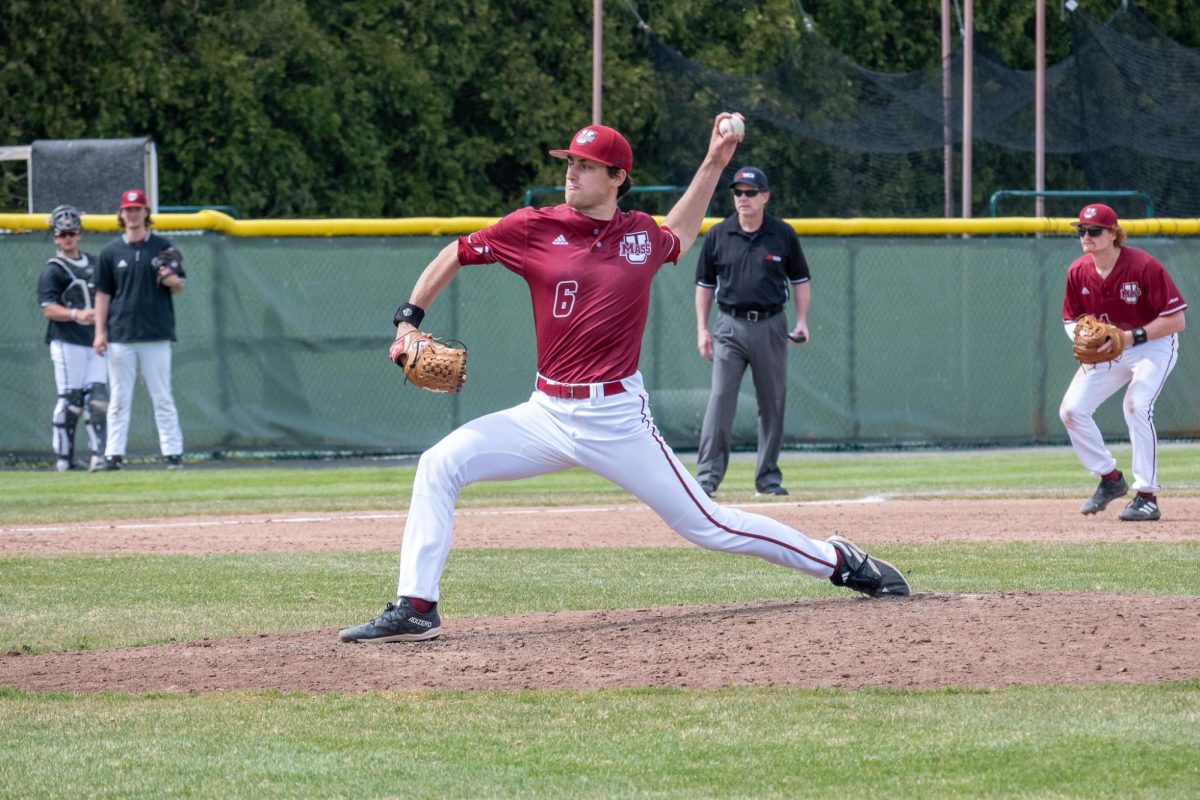Four sergeants, two detectives, two members of the bike unit, an IT manager, and a lieutenant: That’s how many members of the UMass Police Department have registered themselves on the popular social networking site, Facebook.com, as of two weeks ago. While college students have been wasting time with Facebook for a few years now, the world beyond the campus has only recently caught on. Many companies now use Facebook to research potential employees, while the issue of campus police logging on is even more recent, and opens the door to a host of other privacy issues. For example, and as Nicole Leete reported in the Collegian in January: “If there was a party at UMass with underage drinking or vandalism, and partygoers later on posted pictures and added a group about it on Facebook, police could potentially use that information to identify a student as one of the perpetrators.” It hasn’t actually happened at this school yet. But in one famous case, at George Washington University, a group of students was able to lure campus police to a prank party after advertising a “beer blast” on Facebook. And at the University of California, Davis last month, a student was alarmed to find members of the UC Davis police force registered on Facebook, prompting him to alert his campus paper, the Aggie. Is this kind of alarm justified? I decided to ask Barbara O’Connor, chief of the UMPD. Not surprisingly, O’Connor saw no issue with any of her officers using the Facebook to check in on students, since they use it primarily to reach those living in residence halls and who aren’t required to own a telephone. “We have a huge problem on this campus reaching students now because they don’t have to have phones in their room,” she told me, arguing that the real story here was the university’s failure to provide residents with phones. Maybe, except for the fact that one of the two detectives registered happened to be the infamous “FBI agent,” the UMPD’s liaison with the Joint Terrorism Task Force. The pertinent facts, specifically surrounding events in November, 2002 have been well-documented by this paper and are readily accessible, so I won’t go into them here. I’ll simply say that if having an officer of the campus police browsing a site intended for 18-22 year olds to “poke” one another and post pictures of themselves drunk was merely problematic, then the presence of an “FBI agent” would be a serious matter indeed. The quotes and the conditional tense are both intentional. While the detective in question is undoubtedly the person repeatedly named, intermittently since 2002, as an agent of the FBI on this campus that characterization has yet to be definitively proved. Chief O’Connor in particular took issue with this description, describing the Joint Terrorism Task Force (JTTF) as only one of several such task forces in which many in her station participate. Still, news reports from 2002 and 2003 put the “agent” as working anywhere between a few days a week to full-time for the Springfield branch of the FBI, something O’Connor says he still does. Then again, it might not even matter. When I asked Facebook spokesman Chris Hughes about the officer in question, he told me that that account had been removed due to a violation of Facebook’s terms of use-the user had been misrepresenting himself as an undergraduate. (It was probably an honest mistake, since about half of the UMPD on Facebook have done the same thing.) When I pressed him on the privacy issues, Hughes gave me the same answer he’s given to the press again and again in recent months. “Users have complete control over who can see what. Police do not have to have access to users’ profiles unless they give them access themselves.” I think we should all take the hint there. Facebook or not, what’s really going on with this so-called Joint Terrorism Task Force? Is it really necessary to protect the Pioneer Valley from annihilation? (Last time I checked, the closest thing to terrorism that’s happened around here was Shay’s Rebellion, and that was a while ago.) Or is security even the real motive here? What really happened back in 2002, when the JTTF inaugurated itself by questioning an innocent man, and not about any possible illegal activity, but about his political beliefs? “Obviously, it’s possible the police know something we don’t-and it’s also possible that they have ridiculous misinformation which they are convinced is true,” said Dan Clawson, a professor of sociology who organized an emergency forum on academic freedom when the original incident occurred, via e-mail. “I think all of us, students and others, need to be very much concerned about the levels of spying and surveillance in our society. At the moment the key fact is how much we do not know. Perhaps your phone calls and email have already been intercepted, or mine have; perhaps yours will be as a result of this article. If that happens, how would we know?” Paranoia? Or legitimate concerns about safety in an era of increasing surveillance? Mike Sances is a Collegian columnist.






